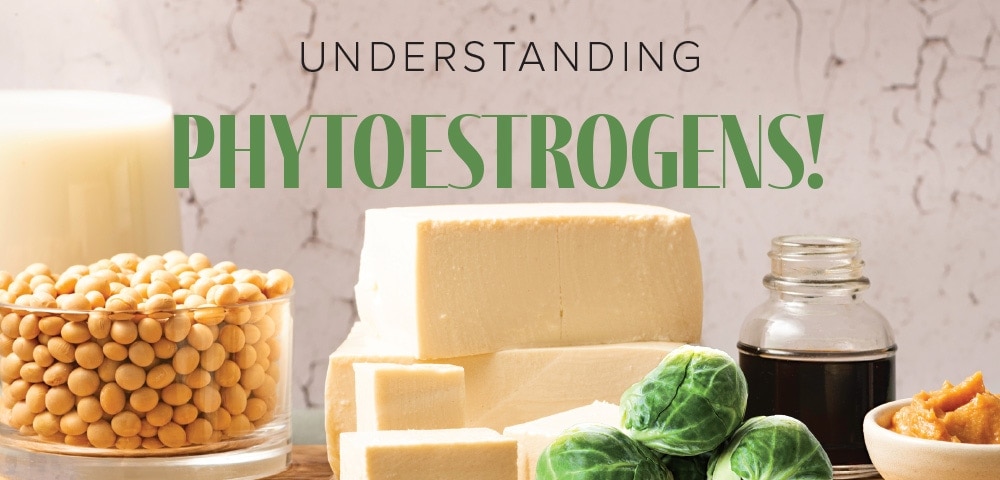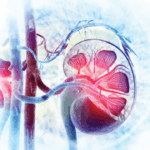
Confused about phytoestrogens? Ongoing debates about the benefits and safety of phytoestrogens have created misunderstanding and skepticism. At Women’s Voice, we want to share some key facts about these notable compounds, but stay tuned for a more in-depth article coming soon!
What are phytoestrogens?
Our bodies are exposed to three sources of estrogens: endogenous estrogens, xenoestrogens, and phytoestrogens. With similar chemical structures as human estrogen, phytoestrogens are natural, plant-derived dietary compounds that exert a variety of health benefits.
Where are phytoestrogens found?
Isoflavones, coumestans, and lignans are major phytoestrogens found in our diet. Soy is a popular phytoestrogen food that contains isoflavones, particularly genistein, daidzein, and glycitein. Remember to always select organic and non-GMO soy products. Coumestans can be found in spinach, brussels sprouts, pinto and lima beans, alfalfa and clover sprouts. On the other hand, flaxseeds, whole grains, fruits, vegetables, and legumes are sources of lignans. In addition to food sources, phytoestrogens can be found in nutritional supplements.
Are phytoestrogens beneficial for health?
Current research indicates that phytoestrogens are beneficial for health, with their impact varying during different life stages. Phytoestrogens act as selective estrogen receptor modulators (SERMs) because of their ability to bind to estrogen receptors and exert weak estrogen-like activity. Antioxidant and anti-inflammatory effects, inhibiting cancer cell growth, and improving insulin sensitivity, glucose and cholesterol metabolism are other observed benefits.
Are phytoestrogens safe?
Because phytoestrogens and human estrogen have similar chemical structures, there has been concern regarding the safety of phytoestrogen’s estrogenic activity. However, current research suggests that consuming phytoestrogen-rich foods is safe and beneficial for the general population, including women with breast cancer or individuals at risk. The use of high doses of phytoestrogens continues to be investigated. Keep in mind that age, the source and dose of phytoestrogens, and microbiome status are a few factors that can impact how phytoestrogens affect the body.
Research has noted the positive impact of phytoestrogens on the prevention of menopausal symptoms, cardiovascular disease, obesity, type 2 diabetes, liver disease, and skin aging.












